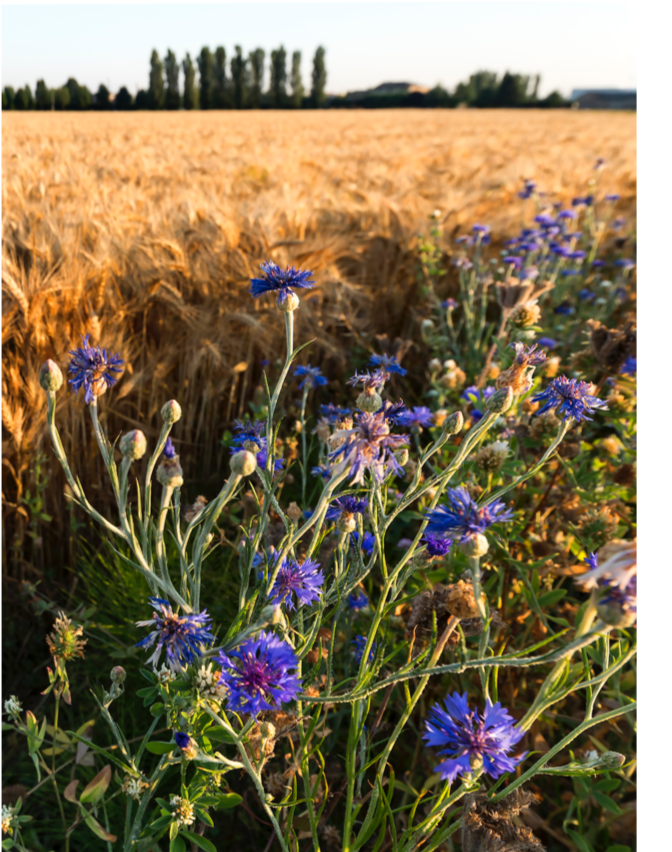July 12, 2019
Breads, mini-cakes and biscuits by Mulino Bianco, part of the Barilla Group, are chosen by consumers for their quality, goodness and taste. Soon they will all come with the ISCC PLUS stamp of sustainability, as part of the company’s commitment to responsible agriculture.
Barilla has recently launched a charter, Carta del Mulino, for farmers producing the soft wheat that is the main ingredient in Mulino Bianco’s bakery products. The charter, which was developed with WWF, will help farmers to promote biodiversity. As part of Carta delMulino, Barilla commits to sourcing 100% of the soft wheat from ISCC certified sustainable agriculture. The ISCC PLUS scheme will provide the assurance that the mills, bakeries and farmers adhere to sustainability, traceability and no-deforestation requirements.
Italian cuisine has a long history and iconic dishes such as pasta and pizza are loved the world over. The Barilla Academia, located in the grounds of the former Barilla pasta factory, is dedicated to the promotion and development of the gastronomic culture of Italy, by providing recipes and cookery courses. High quality local ingredients are key to its success. Mulino Bianco has followed this tradition since its launch in 1975, and it has become Italy’s leading bakery brand. The brand represents the values of tradition, particularly “good things from old times”. Their traditional biscuits are eaten for breakfast and snacks all over the country.

The wheat used in Mulino Bianco biscuits is produced across Europe with about half coming from Italy. Around 500 farms have signed the Carta del Mulino, and Barilla aims to have up to 5,000 signatories, producing 240,000 tonnes of wheat, over the next three years. Farmers will be trained in the requirements of the charter. The positive impacts, both economic and environmental, will be measured by the Universities of Bologna and Tuscia to ensure that the charter delivers real benefits.
Carta del Mulino encompasses specific measures for improving biodiversity with payments to farmers to compensate for lower yields. The farmers will adopt a rotation plan that includes at least three different crops over the course of five years, to enhance the soil and its fertility. At least 3% of the land area occupied by the wheat will be planted with wild flowers and left untreated with chemicals, to promote pollinating insects. About 2,000 hectares will be returned to nature within three years. WWF has helped to select the most suitable flowering species to promote pollinating insects. The aims are to guarantee a food supply for all insects and to bring back wild species such as poppy, cornflower, clover and chamomile.

The wheat varieties planted will be chosen to reduce the need for chemicals and GMO wheat will not be allowed. The use of neocotinoids is forbidden, to protect bees. Treatment with glyphosate is prohibited from sowing until harvest. Physical methods of wheat preservation during storage, such as refrigeration or a modified atmosphere are preferred, to limit the use of chemical preservatives. Carta del Mulino wheat must also be kept separate from all other wheat using a traceability system for the whole supply chain.

The company’s largest bakery, in Castiglione delle Stiviere, near Mantua, which produces 108,000 tonnes of biscuits per year, has already gained ISCC PLUS certification. The flour mill in Galliate and some of the farmers who supply it with wheat, have also become certified in 2019. Buongrano is the first biscuit containing ISCC certified flour. Barilla has chosen the segregation model so Carta del Mulino wheat is kept separate. By 2022 six bakeries and fourteen mills will be ISCC certified and then all of Mulino Bianco’s products will be made from certified soft wheat.
The company is committed to reducing its environmental impact in other ways too. In 2018, greenhouse gas emissions fell by 29% per finished product compared with 2010, while water consumption was reduced by almost a quarter. These improvements were achieved by increasing the efficiency of the production processes. Barilla is a supporter of the circular economy and it has pioneered the recycling of waste products. By incorporating inedible bran residue into packaging, the need for cellulose and filler materials from virgin sources has been reduced.
Damiano Sanfelici, Quality and Food Safety Manager, says: ‘Barilla is very happy to be working with ISCC and partners to implement the Carta del Mulino, which supports the work of farmers’ communities and restores space for nature in agro-ecosystems, promoting biodiversity, reducing the use of chemicals and protecting pollinating insects’.
The Italian way of life, built on its cuisine, is admired throughout the world. As Barilla embraces sustainable agriculture, the famous dolce vita will become even sweeter.
For more information on ISCC certification please contact ISCC at info(at)iscc-system.org